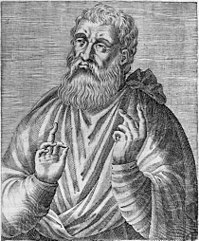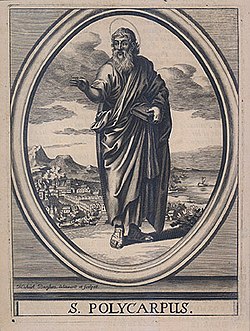




(Clement of Rome, Justin Martyr, Polycarp, Chrysostom, Augustine – courtesy Wikipedia)
By Spencer D Gear
Justification or salvation by faith is taught by these church fathers:
Clement of Rome (ca 30-100):
‘All these, therefore, have been glorified and magnified, not through themselves or through their works, or through the righteousness that they have done, but through his will.And we who through his will have been called in Christ Jesus are justified, not by ourselves, or through our wisdom or understanding or godliness, or the works that we have done in holiness of heart, but by faith, by which all men from the beginning have been justified by Almighty God, to whom be glory world without end. Amen’ (The First Epistle of Clement to the Corinthians 32:3-4).
Justin Martyr (ca 100-165):
‘For Isaiah did not send you to a bath, there to wash away murder and other sins, which not even all the water of the sea were sufficient to purge; but, as might have been expected, this was that saving bath of the olden time which followed s those who repented, and who no longer were purified by the blood of goats and of sheep, or by the ashes of an heifer, or by the offerings of fine flour, but by faith through the blood of Christ, and through His death, who died for this very reason, as Isaiah himself said’ (Dialogue with Trypho, ch 13).
Polycarp (ca 70-155):
‘Though you did not see him, you believed in unspeakable and glorified joy,” — into which joy many desire to come, knowing that “by grace ye are saved, not by works” but by the will of God through Jesus Christ. (Polycarp to the Philippians chap. 1, v. 3).
Chrysostom (ca 347-407):
‘But no one, he says, is justified by works, in order that the grace and loving-kindness of God may be shown. He did not reject us as having works, but as abandoned of works He has saved us by grace; so that no man henceforth may have whereof to boast. And then, lest when you hear that the whole work is accomplished not of works but by faith, you should become idle, observe how he continues’ (Homilies on Ephesians, Homily 4, ch 2, v 9).
Augustine (ca 354-430):
“Having now to the best of my ability, and as I think sufficiently, replied to the reasonings of this author, if I be asked what is my own opinion in this matter, I answer, after carefully pondering the question, that in the Gospels and Epistles, and the entire collection of books for our instruction called the New Testament, I see that fasting is enjoined. But I do not discover any rule definitely laid down by the Lord or by the apostles as to days on which we ought or ought not to fast. And by this I am persuaded that exemption from fasting on the seventh day is more suitable, not indeed to obtain, but to foreshadow, that eternal rest in which the true Sabbath is realized, and which is obtained only by faith, and by that righteousness whereby the daughter of the King is all glorious within” (Letter 36, ch 11, v 25).
(Courtesy Loyal Books)
Copyright © 2014 Spencer D. Gear. This document last updated at Date: 21 November 2015.
![]()
